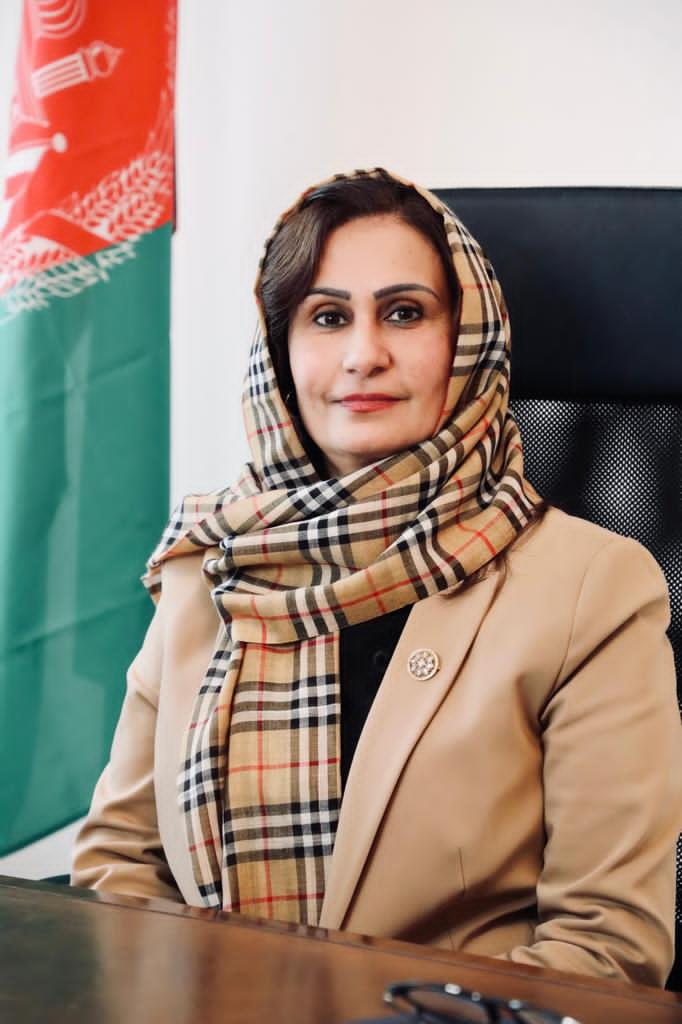What Is the Legal Status Quo of the Afghan Embassy in Vienna?
The last de facto ambassador of the Islamic Republic of Afghanistan in Austria, Ambassador Manizha Bakhtari, no longer represents an existing government, but wants to remain Afghanistan's ambassador in Vienna after the Taliban's violent takeover of Kabul. She justifies this by saying that the illegitimate Taliban government cannot recall her and that Austria must first recognize the Taliban in order to legitimize her recall. Some members of the Austrian Parliament have now submitted an inquiry to Alexander Schallenberg, through which the status quo is to be determined.
 H.E. Ms. Manizha Bakhtari, the last de facto ambassador of the Islamic Republic of Afghanistan in Austria. / Picture: © Embassy of Afghanistan in Vienna
H.E. Ms. Manizha Bakhtari, the last de facto ambassador of the Islamic Republic of Afghanistan in Austria. / Picture: © Embassy of Afghanistan in Vienna
After the violent takeover of power by the Taliban in Kabul, the ambassador of Afghanistan, Manizha Bakhtari, currently remains in Vienna.
She continues to give interviews and speak out against Taliban rule and in support of civil society and the achievements of the past 20 years, the request states.
In an interview with Kronen Zeitung, she states that she remains Afghanistan's ambassador because the illegitimate Taliban government cannot recall her and Austria must first recognize the Taliban to legitimize her recall.
On the other hand, Ambassador Bakhtari no longer represents an existing government, the request continues.
The undersigned Members of Parliament, Dr. Helmut Brandstätter (Brandstaetter) and colleagues, therefore put the following questions:
- Does the Federal Republic of Austria continue to recognize the Afghan diplomatic mission sent by the Ashraf Ghani government?
Do the Afghan employees of the Embassy continue to have diplomatic status and the right of residence? - How is the Afghan Embassy currently funded?
- President Ashraf Ghani has fled Afghanistan and is living in exile. What is the status of the elected, recognized but deposed and de facto non-existent Ghani government?
- Request explanation of the process necessary to replace embassy personnel by the Taliban.
Is recognition of the Taliban government necessary?
Does Austria recognize any states or governments? - Like many other states, Austria will need to exchange views with the Taliban on mutually important issues, regardless of formal recognition. How will this exchange proceed without formal representation?
- Embassy personnel have worked for the Ghani government and have spoken out, sometimes very clearly, against the Taliban. Even after they came to power, Ambassador Bakhtari spoke out against recognizing a terrorist organization like the Taliban as a government. What will happen to the embassy staff, including educated women who would be particularly vulnerable to the Taliban, after their diplomatic status ends?
Will they be given the right to stay in Austria?
If not, what is the alternative for those who do not enjoy dual citizenship or residence permits in third countries?
This written question was submitted to Mag. Alexander Schallenberg, LL.M. Member of the Government at the Federal Ministry for European and International Affairs.



